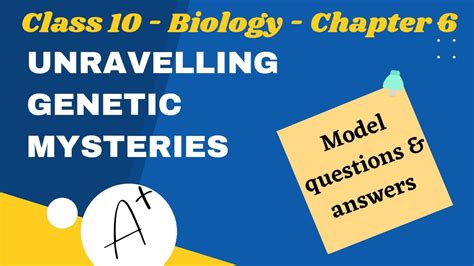Introduction

Biology, the study of life, is an incredibly vast and complex field. From the smallest microorganisms to the largest whales, biology encompasses everything living on Earth. In this article, we will explore some of the most intriguing and fundamental questions about biology, providing answers based on current scientific knowledge. Prepare to dive into the fascinating realm of life and discover the mysteries that lie within.
1. What is the Origin of Life?
The origin of life is one of the greatest unsolved mysteries in science. While we cannot say for certain how life began, there are several prevailing hypotheses:
- Abiogenesis: Life arose from non-living matter through a series of chemical reactions.
- Panspermia: Life originated elsewhere in the universe and was transported to Earth by comets or asteroids.
- RNA World Hypothesis: Life emerged from self-replicating RNA molecules that could carry out genetic functions.
2. What is DNA and How Does it Work?
Deoxyribonucleic acid (DNA) is the blueprint of life. It contains the genetic instructions for every living organism. DNA is composed of four different nucleotides: adenine (A), cytosine (C), guanine (G), and thymine (T). These nucleotides form base pairs, such as A-T and C-G, creating a double helix structure. DNA is replicated during cell division, ensuring the faithful transmission of genetic information.
3. What is Cellular Respiration and Why is it Important?
Cellular respiration is a process by which cells convert glucose into energy-rich molecules called ATP. ATP is the primary energy currency of cells and is used to power a variety of cellular functions, such as muscle contraction, protein synthesis, and cell division.
4. How Do Organisms Evolve?
Evolution is the process by which organisms change over time. It is driven by several mechanisms, including:
- Natural selection: Organisms with traits that are better suited to their environment survive and reproduce more successfully.
- Genetic drift: Random changes in gene frequencies within a population.
- Mutation: Changes in DNA sequences.
5. What is the Role of Photosynthesis in the Biosphere?
Photosynthesis is the process by which plants, algae, and some bacteria convert sunlight into chemical energy in the form of glucose. This glucose is used by organisms as a primary source of food. Photosynthesis also releases oxygen into the atmosphere, which is essential for aerobic respiration.
6. What is the Importance of Plant and Animal Kingdoms?
Plant Kingdom:
- Food source: Plants are the primary producers in the food chain and provide sustenance for all other organisms.
- Oxygen production: Plants release oxygen as a byproduct of photosynthesis.
- Habitat: Plants provide shelter and nesting grounds for animals.
- Medicinal properties: Many plants contain compounds with therapeutic value.
Animal Kingdom:
- Consumers: Animals consume plants or other animals for energy.
- Pollinators: Animals, such as bees, are essential for the reproduction of many plant species.
- Decomposition: Animals, such as scavengers, break down dead organisms and recycle nutrients back into the ecosystem.
- Companionship: Pets provide companionship and emotional support to humans.
7. What is the Impact of Human Activity on the Biosphere?
Human activities have a significant impact on the environment, including:
- Climate change: Greenhouse gases released by human activities contribute to global warming and climate change.
- Deforestation: Clearing forests for agriculture, development, and other purposes destroys habitats and biodiversity.
- Pollution: Industrial emissions, agricultural runoff, and waste disposal contaminate air, water, and soil.
- Overpopulation: The growing human population puts a strain on resources and increases environmental degradation.
8. What are the Ethical Considerations in Biology?
Advances in biological research have raised important ethical concerns, such as:
- Genetic engineering: Modifying the genetic makeup of organisms raises questions about unintended consequences and genetic discrimination.
- Cloning: Creating genetically identical organisms raises concerns about individuality and identity.
- Stem cell research: Using human embryos for research purposes involves ethical debates about the status of human life.
- Animal experimentation: Using animals in biomedical research raises ethical concerns about animal welfare and the validity of results.
9. What is the Future of Biology?
The field of biology continues to advance rapidly, with new discoveries and applications emerging all the time. Some areas of innovation include:
- Personalized medicine: Tailoring medical treatments to individual genetic profiles.
- Gene editing: Using tools like CRISPR-Cas9 to modify DNA for therapeutic purposes.
- Synthetic biology: Creating biological systems and organisms from scratch.
- Biomimicry: Designing products and technologies inspired by biological structures and processes.
Conclusion
Biology is a captivating and ever-evolving field that provides insights into the fundamental nature of life itself. Through ongoing research and innovation, we continue to unravel the countless mysteries of the living world. Understanding biology is essential for addressing pressing global challenges, such as climate change, food security, and infectious diseases. Embrace the wonders of life and continue your journey of biological exploration.
